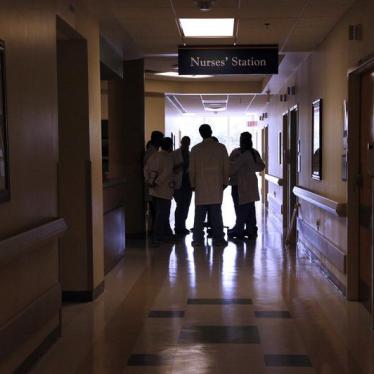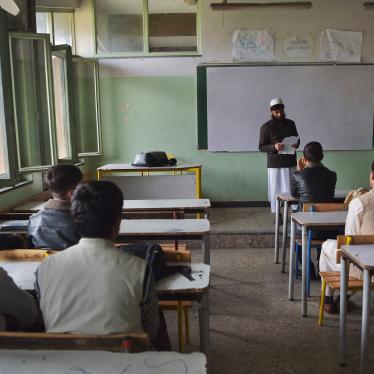Public pressure is growing in Australia to end the harmful and unnecessary medical practices imposed on intersex people – people born with variations in sex characteristics. Today, we mark Intersex Awareness Day amid signs that the global push to ban these harmful procedures is gaining momentum.
Earlier this month, Human Rights Watch submitted a letter to the Australian Human Rights Commission’s consultation on the rights of intersex people in medical settings urging the commission to condemn the persistent practice of defaulting to medically unnecessary, non-consensual “normalizing” surgeries on children born with intersex variations. National groups including Androgen Insensitivity Syndrome Support Group Australia, Disabled People’s Organizations Australia, and Intersex Human Rights Australia led the call.
An estimated 1.7 percent of the global population is born with bodily traits that do not fit conventional notions of female or male – variations in sex characteristics called intersex. Their sex characteristics, such as chromosomes, gonads, or genitals, may differ from what people think of as “normal.” While these variations usually pose no health risk, in the 1960s surgeons in the US popularized “normalizing” operations, such as procedures to reduce the size of the clitoris or remove testes.
But these procedures are not designed to treat a medical problem, and there is no evidence they help children “fit in” or “function in society,” which some surgeons say is their aim. The operations carry high risks of scarring, loss of sexual sensation, incontinence, sterilization, and psychological trauma like that experienced by childhood sexual abuse victims. Some surgeries can sterilize the person and result in the need for lifelong hormone replacement therapy.
By the 1990s, intersex people who had undergone those operations were advocating for their rights – including by protesting at the American Academy of Pediatrics in Boston on October 26, 1996, the anniversary of which is marked as Intersex Awareness Day today.
In 2017, intersex activists from Australia and New Zealand issued the Darlington Statement, which calls for a ban on medical interventions on intersex children. United Nations human rights bodies have critiqued Australia’s unnecessary intersex surgeries as well – in line with the growing global consensus that medical guidelines and legal standards should bar medically unnecessary interventions on children until they are old enough to consent.
In its quest to recommend “changes to clinical practices and legal frameworks to best protect human rights,” the commission should listen to the intersex advocates who have fought for decades for their rights to autonomy and bodily integrity to be respected.









